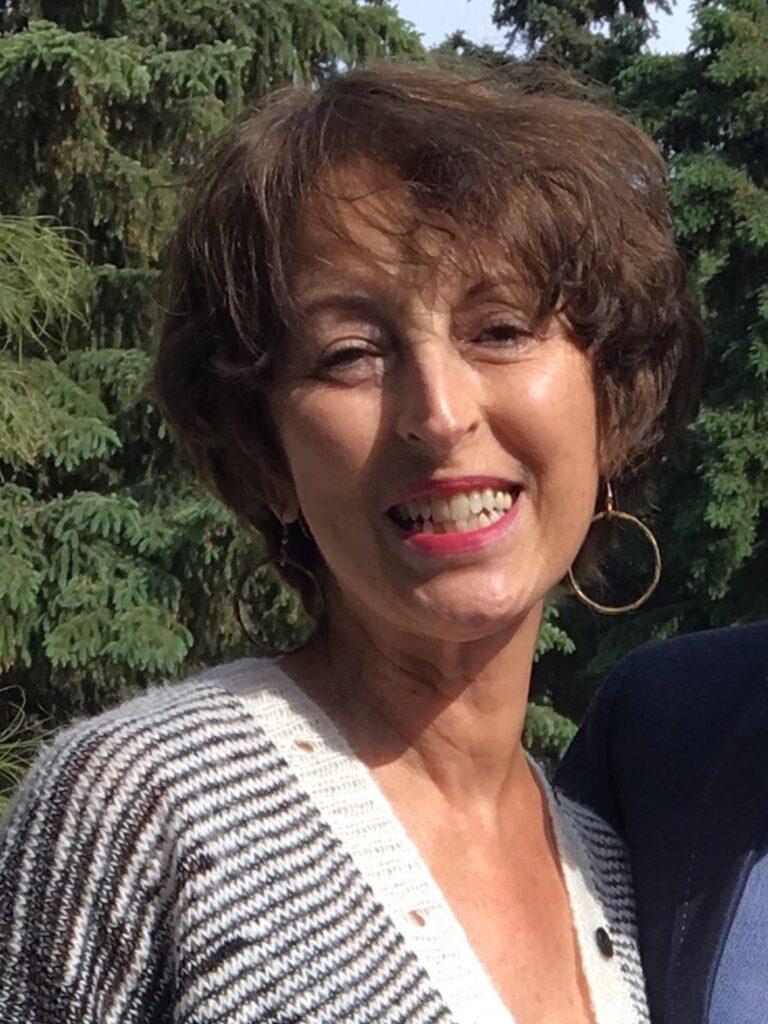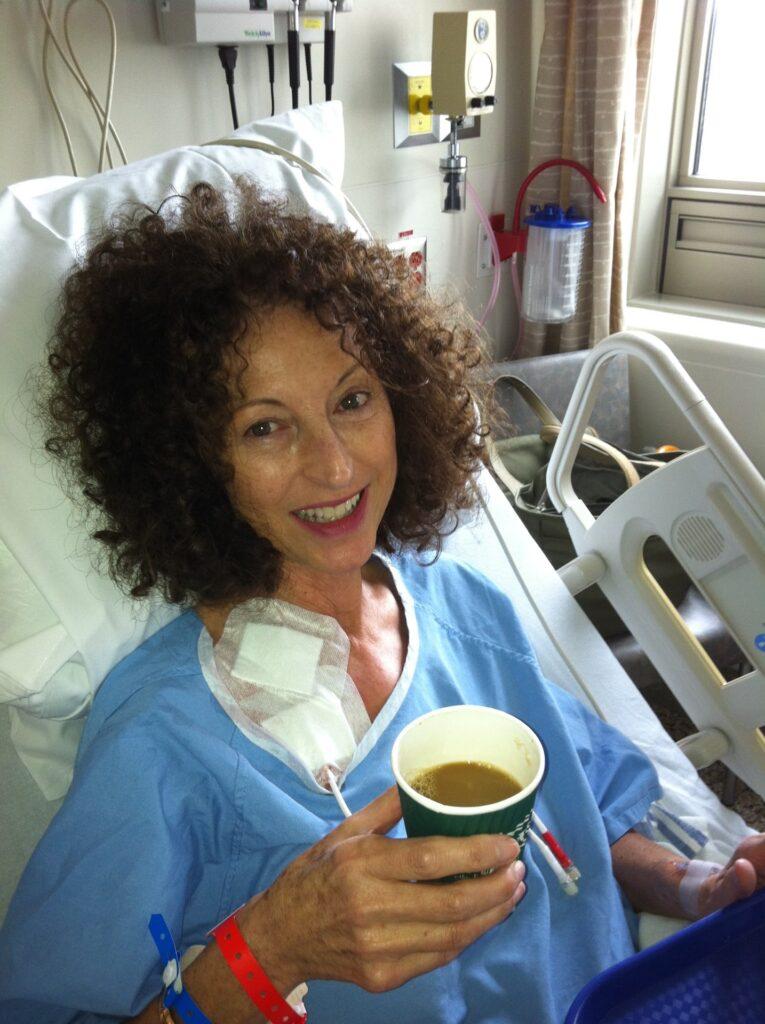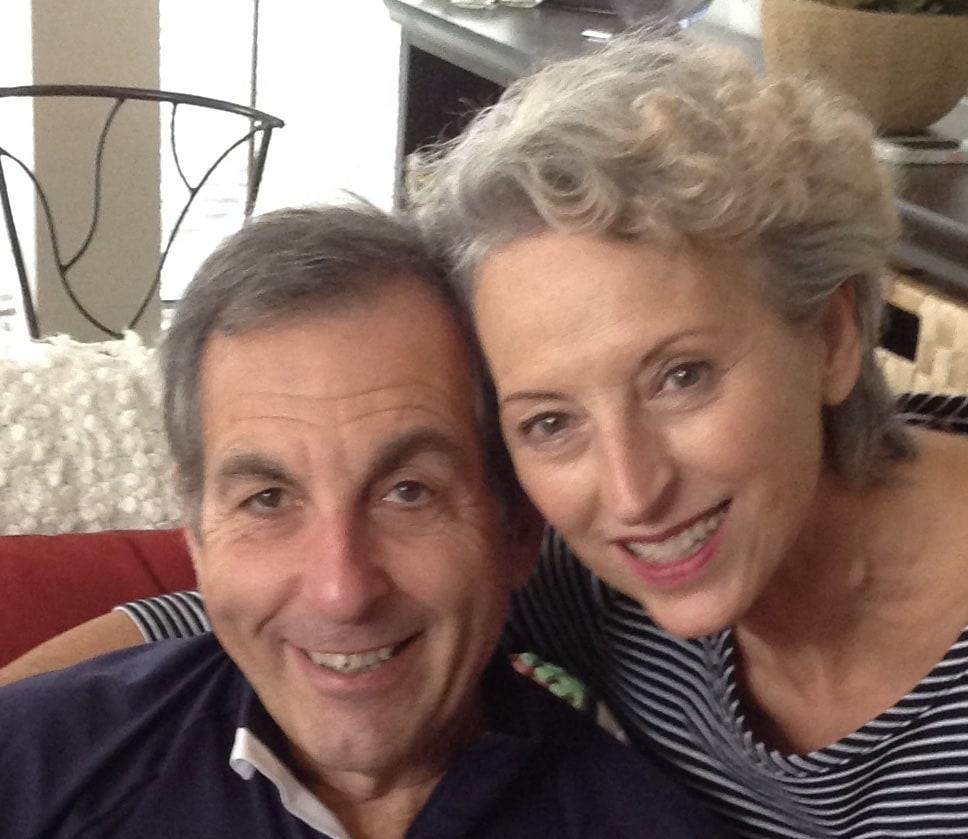Weddings are some of the most meaningful events in people’s lives. For Jacqui Benton, her youngest son’s marriage ceremony was supposed to be an unforgettable time at a Mexican beachside venue. But the celebration did not go as planned. Jacqui collapsed while mingling with guests.
“Prior to the wedding, I started noticing signs that something was wrong,” she explains. “I had experienced severe tiredness and slight progressive weight loss—unusual symptoms for someone who had always been very healthy and active.” Jacqui planned to get a full physical upon her return from the wedding.
Her husband Claude, a physician, was not entirely surprised by her collapse. He suspected that previous symptoms, the extreme heat, and dehydration from a gastrointestinal virus were to blame. Jacqui recovered over the next few days and flew home to Vancouver Island. She then went for an immediate appointment with her doctor, who ran a complete set of tests. The results would change her life forever.

Jacqui Benton was diagnosed with multiple myeloma at age 66.
Looking for the right treatment
Jacqui was diagnosed with multiple myeloma—a cancer of the plasma cells. Patients with this type of cancer have cells that grow more than they should and build up in the bone marrow. Without healthy plasma cells, the body’s ability to make antibodies and fight infections is severely reduced.

Jacqui undergoing treatment in Vancouver.
“My disease was quite advanced,” Jacqui says. “The genetic abnormality that caused my myeloma was one with a particularly poor prognosis. The good news was that my bones and kidneys were unaffected.” Luckily for Jacqui, her diagnosis was quick and efficient. Diagnosis of the disease can take years for many myeloma sufferers. “The symptoms of myeloma can be very general,” Claude explains. “Some of the most common [ones] are tiredness and bone pain, which can apply to many diseases.”
Jacqui’s hematologist reassured her that promising new treatments and research could give her at least another eight years of life. “In the face of a terminal disease, that time seemed a long way off,” Jacqui acknowledges. “However, I had to accept that I was no longer the healthy and active person I had been for 66 years. I also had to educate myself on the condition and its complex terminology.”
Treatment started right away. Jacqui received chemotherapy in a triple cocktail of drugs that involved weekly visits to a cancer clinic close to home. “Thankfully, I had very few side effects other than poor sleep and severe tiredness,” she recalls.
A stem cell transplant was the recommended myeloma treatment at the time of Jacqui’s diagnosis in 2013. This type of treatment is a taxing process in which a patient’s entire blood volume is removed from circulation, then passed through a machine that extracts all the stem cells. The blood is slowly pumped back into the body in a process that takes seven hours. “I received a potent dose of chemotherapy afterwards,” Jacqui says. “Then I went back a few days later to get the stem cells re-transfused into my body.” While initially successful, the transplant kept the disease under control for only a year.
Renewed hope
Jacqui received several chemotherapy treatments over the next seven years. Each one was successful for about 12 months before losing effect. Jacqui was running out of options. The last drug combination that she tried kept her myeloma in remission well past the one-year mark; however, funding for the treatment was limited to a single year. “This was the only time that financial considerations impacted my treatment,” she says. “By 2021, I had exhausted most options and my disease was progressing again.”
The innovative medicines that Jacqui received since 2013 extended her life for eight years, as her doctor predicted. They also bought her time while new treatments were in development. Later in 2021, Jacqui learned of a new treatment opportunity. “My follow-up appointment in Vancouver was life-changing,” she says. “My oncologist recommended a new clinical trial at the National Institutes of Health (NIH) in Bethesda, Maryland.”
Several phone interviews and tests soon followed. The NIH found Jacqui eligible and invited her to join the trial. Treatment would involve regular travel to the US for the next five years.

Jacqui and husband Claude Benton
Jacqui was hospitalized at the NIH for 10 days, where she received a mild dose of chemotherapy and a Chimeric antigen receptor T-cell therapy (CAR-T). In this type of treatment, immune-system T-cells are extracted from the body, genetically modified and then re-transfused to help fight cancer cells.
“The days after the infusion pose many dangers,” she says. “Side effects can be serious. Thankfully, I overcame them and avoided the ICU.” Jacqui and Claude were separated from each other for the duration of the treatment due to COVID restrictions. After Jacqui’s recovery, the couple travelled back to Canada, where a multitude of symptoms severely restricted her everyday life until they resolved six months later.
A life restored
Jacqui knows that the clinical trial is not a cure. However, the results are promising—she has gone almost three years with no treatment other than the CAR-T cell therapy. She visits the NIH only every six months for check-ups, blood tests and bone marrow biopsies. “I’ve slowly recovered and regained my strength,” Jacqui explains. “I’m now feeling well and in almost complete remission.”
“20 years ago, myeloma was a death sentence,” Claude says. “Few treatments existed and progression was quick. That is no longer the case. That is why clinical trials are vital—they lead the way to treatments and cures.”
Innovative medicines and clinical trials gave Jacqui back her life. She hopes that medical advances will one day lead to a cure for myeloma in Canada and elsewhere.
“My son celebrated his 10th wedding anniversary recently,” she says. “This time it was different. I was there for all festivities—a testament to modern medicine and the love of my family and friends.”
- Visit Myeloma Canada to learn more about the disease.
- Read the stories of other patients.



